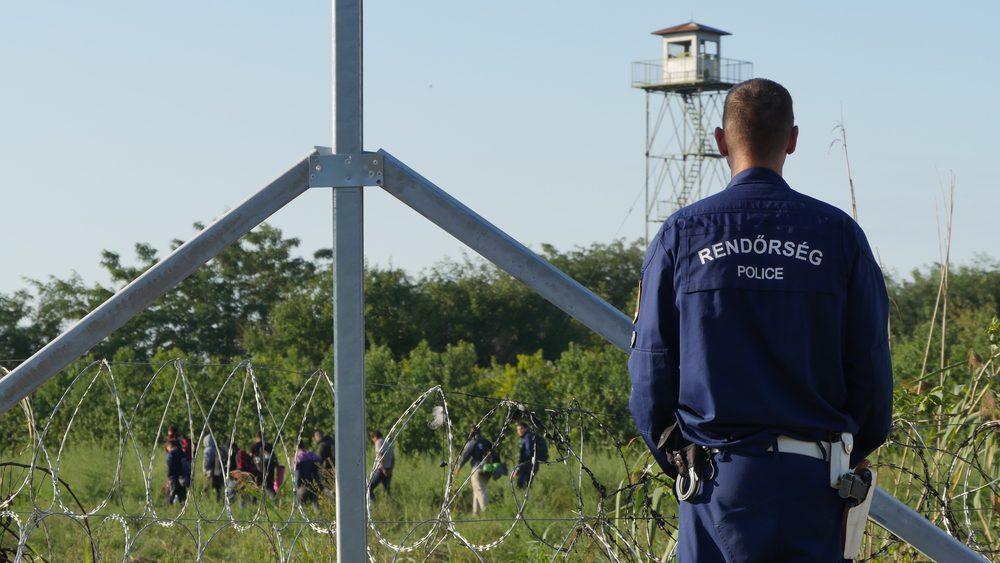
Hungarian border guard watches migrants walk along the fence on the country’s southern border.
The Austrian Foreign Ministry summoned Hungary’s ambassador to Vienna to demand answers following Budapest’s decision to release foreign nationals convicted of human trafficking, Reuters reported on Monday, May 22nd.
The decree to release some 700 foreign nationals convicted of human trafficking—provided that they leave the country within 72 hours—was signed by Hungarian Prime Minister Viktor Orbán last month, citing overcrowded prisons and the financial burden of prisoners.
However, Vienna fears that the criminals will end up in Austria, or elsewhere in the EU, and has already moved to strengthen the security measures on its eastern border with Hungary, leading to traffic jams and lengthy waiting times for those wishing to enter the country.
“We think this is an entirely wrong signal,” Austrian Foreign Minister Alexander Schallenberg said while in Brussels for a Council meeting on Monday, adding that he demands “full clarification” from Budapest.
After speaking with his Austrian counterpart, Hungarian Foreign Minister Péter Szijjártó defended Budapest’s position, calling it a “sovereign Hungarian decision.”
“We extradite foreign criminals and it is better they leave the country,” Szijjártó said in Brussels.
According to the Hungarian authorities, there are some 2,600 foreign prisoners convicted for human trafficking in Hungary, which is over 13% of the entire Hungarian prison population. They belong to 73 separate nationalities, but most of them hold citizenship in neighboring countries, such as Serbia, Romania, and Ukraine.
“Their detention, mainly because of language difficulties and special dietary needs, generates extra work and billions [of forints] in annual costs for the prison service,” explained György Makula, spokesman of the Hungarian Prison Service.
Despite the fact that Hungary’s southern border is entirely protected by a barbed wire fence and regular border patrol units since 2015, migrants coming on the Balkan route still attempt to cross it frequently, many of them aided or instructed by human smugglers. Over 2,000 illegal entry attempts were registered every week in the previous months.
Announcing the decision back on May 11th, Gergely Gulyás, the Hungarian Minister for the Office of the Prime Minister also underlined the prisons as overcrowded and resources overstretched, saying that it was the right decision not to keep on caring for hundreds of human traffickers on Hungarian taxpayers’ money—adding that all of the released prisoners will be thoroughly monitored to ensure that they comply with the rule to leave the country within days.
However, Austria still thinks it’s dangerous to let traffickers roam free, whether monitored or not. As a spokesman of the Austrian Ministry of Internal Affairs said, “people smugglers are criminals, and are part of organized crime. Their brutal actions endanger human lives.”
